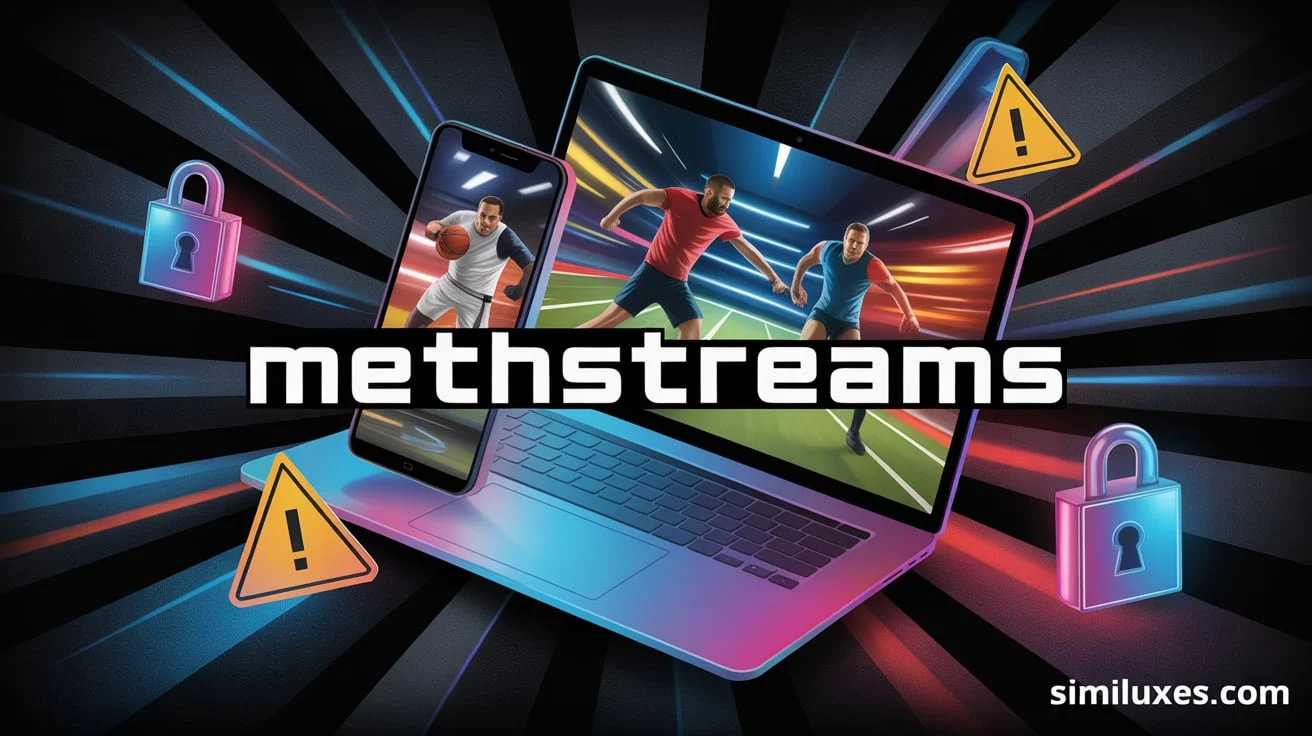Ever watched a courtroom drama and heard, “The defendant has been acquitted,” and wondered — what does that really mean? 🎬
This word often pops up in news headlines, legal reports, and crime documentaries, carrying a sense of finality and relief. But while it sounds like “freedom,” it’s not always that simple.
In this guide, we’ll break down what “acquitted” means, its legal roots, real-world usage, and how it differs from similar terms like innocent or dismissed.
If you’re a law student, a news reader, or just curious about court language, this article will make the term acquitted crystal clear. 🧠
📘 Definition & Meaning
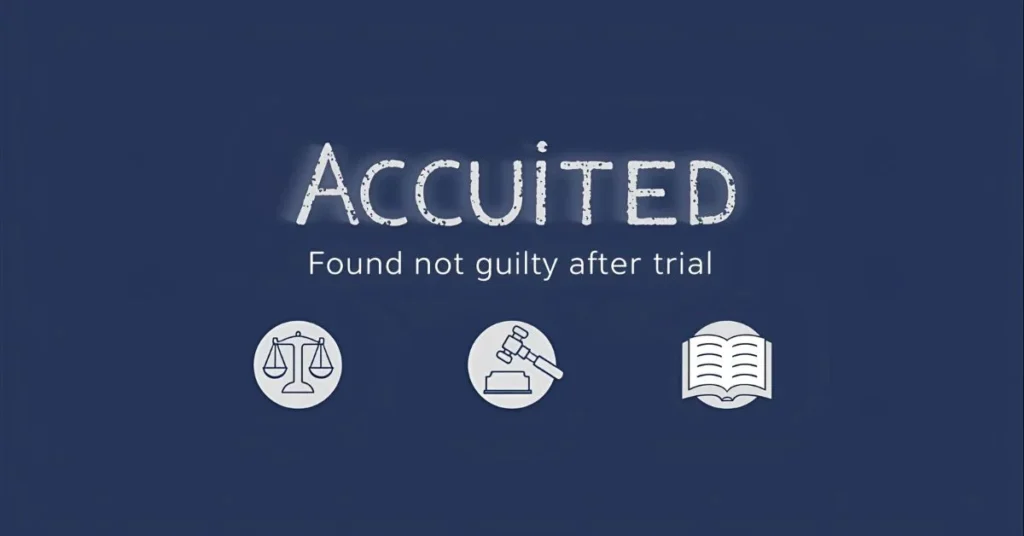
The word “acquitted” means that a person who was accused of a crime has been found not guilty by a court of law.
👉 In simple terms:
To be acquitted = to be cleared of criminal charges.
When a person is acquitted, it means the jury or judge decided that there wasn’t enough evidence to prove they committed the crime beyond a reasonable doubt.
Example (Court Context):
- Judge: “The defendant is acquitted of all charges.”
- Meaning: The person walks free because the court didn’t find them guilty.
Quick Summary Table:
| Term | Meaning | Legal Outcome |
|---|---|---|
| Acquitted | Found not guilty after trial | Person is free; case closed |
| Convicted | Found guilty after trial | Person may face punishment |
| Dismissed | Case dropped before verdict | No trial or further action |
So while “acquitted” sounds like “innocent,” it legally means that guilt wasn’t proven — not necessarily that the person didn’t do it.
🕰️ Background & History
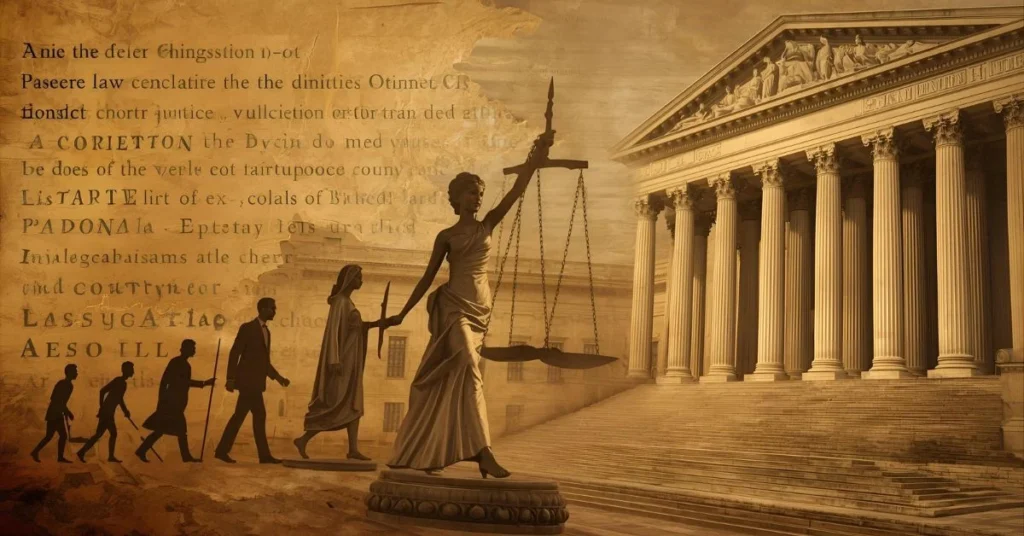
The term acquitted comes from the Latin acquietare, meaning to set free or to release from blame.
Historically, it was used in English law to signify freedom from accusation or debt. Over time, it became a standard legal term for declaring someone not guilty in criminal proceedings.
In modern systems (like the U.S., U.K., and Commonwealth countries), an acquittal protects individuals from being tried again for the same offense — a principle called “double jeopardy.”
Famous Example:
When O.J. Simpson was found “not guilty” in 1995, he was acquitted of murder charges. This meant he could not be retried for the same crime in a criminal court.
💬 Usage in Various Contexts
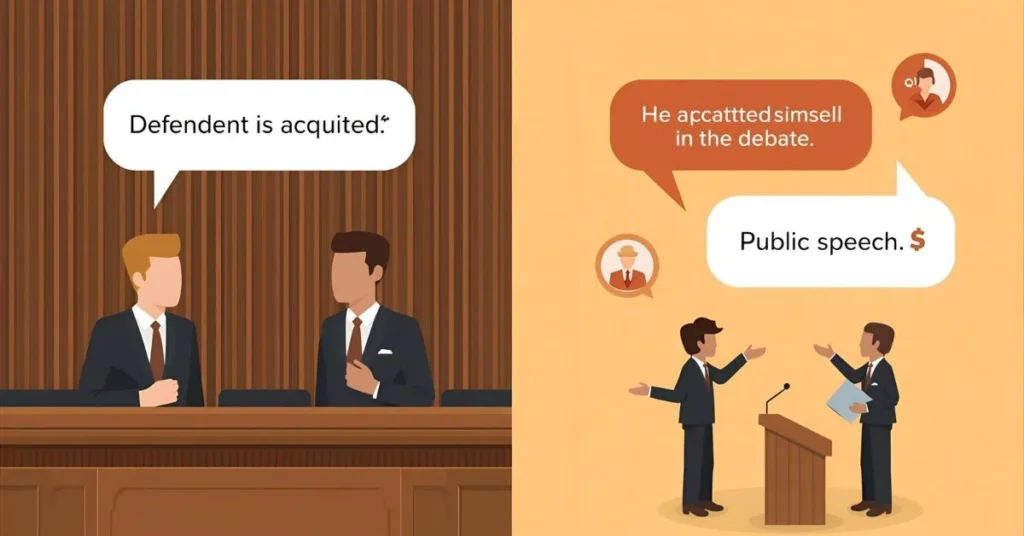
Though “acquitted” is mainly a legal word, it appears in everyday conversation, media, and even figuratively in personal contexts.
1. Legal Context (Most Common):
“The jury acquitted her after finding no evidence.”
— Used in news, law reports, or trials.
2. Figurative Use:
“He acquitted himself well in the debate.”
— Meaning: He performed admirably or did well under pressure.
3. News & Media:
“The politician was acquitted after a lengthy corruption trial.”
— Often used in headlines to announce verdicts.
🚫 Common Misconceptions & Clarifications
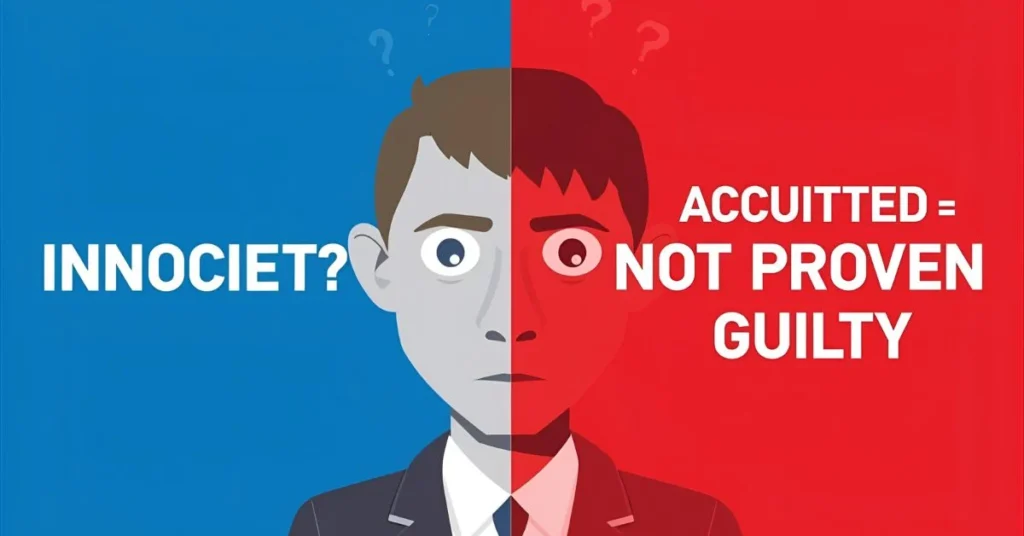
| Misconception | Clarification |
|---|---|
| “Acquitted” means innocent. | Not exactly. It means not proven guilty. |
| Once acquitted, a person can be retried. | False. Double jeopardy laws prevent retrial for the same offense. |
| It means the charges were dropped. | No — charges were heard, but the court found no guilt. |
| Acquittal clears all suspicion. | Not legally — public opinion may still differ. |
👉 So, acquitted ≠ innocent, but it does mean legally cleared of wrongdoing.
🔁 Similar Terms & Alternatives
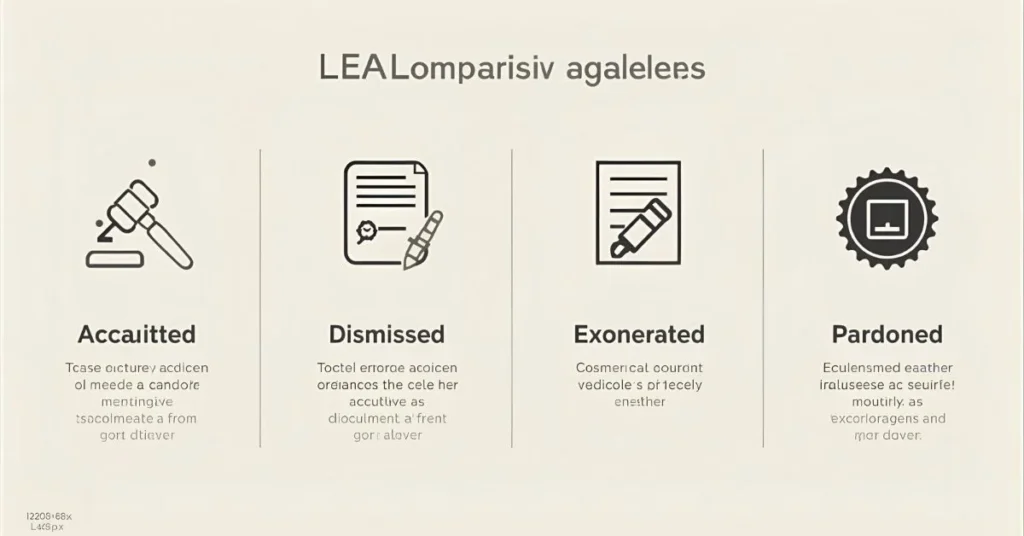
| Term | Meaning | Common Usage |
|---|---|---|
| Dismissed | Case dropped before trial | Lack of evidence or legal error |
| Exonerated | Officially declared innocent | After new evidence emerges |
| Pardoned | Forgiven by authority (e.g., President) | After conviction |
| Not Guilty | Verdict by judge/jury | Equivalent to acquitted |
Each term has its own legal nuance, but “acquitted” specifically refers to a verdict after a full trial.
💬 How to Use or Respond to This Term

When someone says they were acquitted, respond based on tone and context:
- Neutral / Respectful: “That must be a relief after such a long case.”
- Formal Setting: “Congratulations on your acquittal.”
- Avoid: Making assumptions about guilt or innocence — let the law speak.
🌍 Regional or Cultural Differences
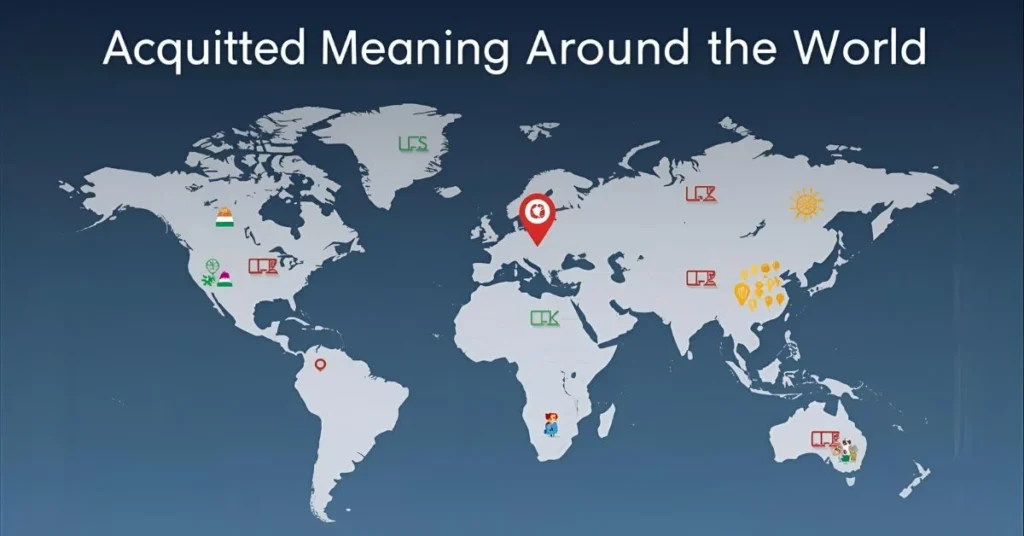
The use of acquitted is consistent across English-speaking countries, but interpretations vary:
- U.S. & U.K.: Strictly legal term used in verdicts.
- India & Pakistan: Common in media and legal documents, but sometimes misused as case dismissed.
- Australia & Canada: Has the same meaning — found not guilty.
⚖️ Comparison with Similar Legal Outcomes
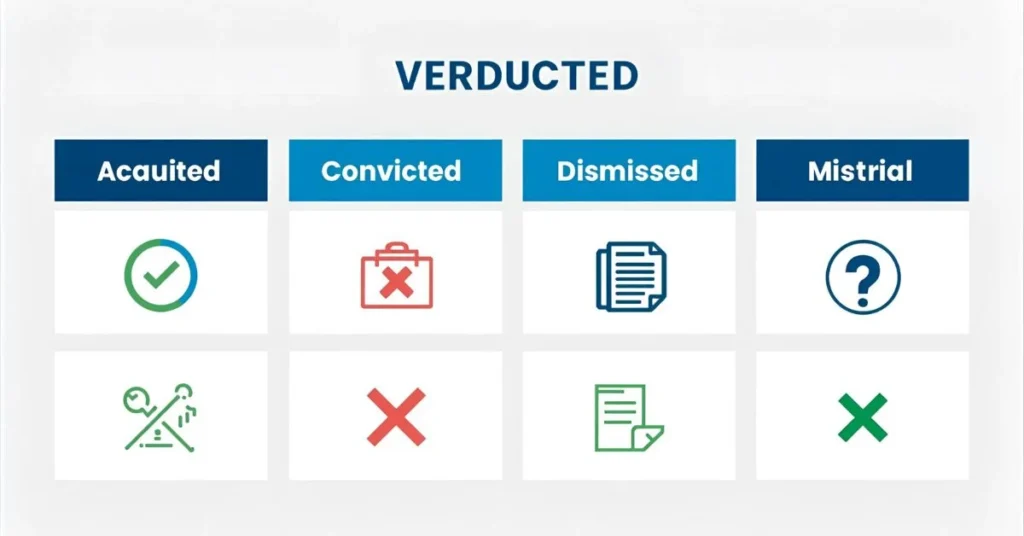
| Verdict | Court’s Decision | Legal Effect |
|---|---|---|
| Acquitted | Not guilty | Free; can’t be retried |
| Convicted | Guilty | Punishment follows |
| Dismissed | Dropped before verdict | Ends early |
| Mistrial | No verdict reached | Can be retried |
💻 Usage in Media & Online Communities

On Twitter, Reddit, and YouTube, “acquitted” often trends during high-profile trials.
Example Posts:
“Breaking: The defendant has been acquitted on all counts.”
“He was acquitted but public opinion still doubts his innocence.”
It’s also used in comment debates to discuss justice, fairness, and legal outcomes.
🚫 Hidden or Offensive Meanings

“Acquitted” itself isn’t offensive, but using it sarcastically can sound dismissive.
For instance:
“Oh sure, he’s acquitted — doesn’t mean he’s innocent.”
Tone and context matter, especially in sensitive discussions.
🏢 Suitability for Professional Communication
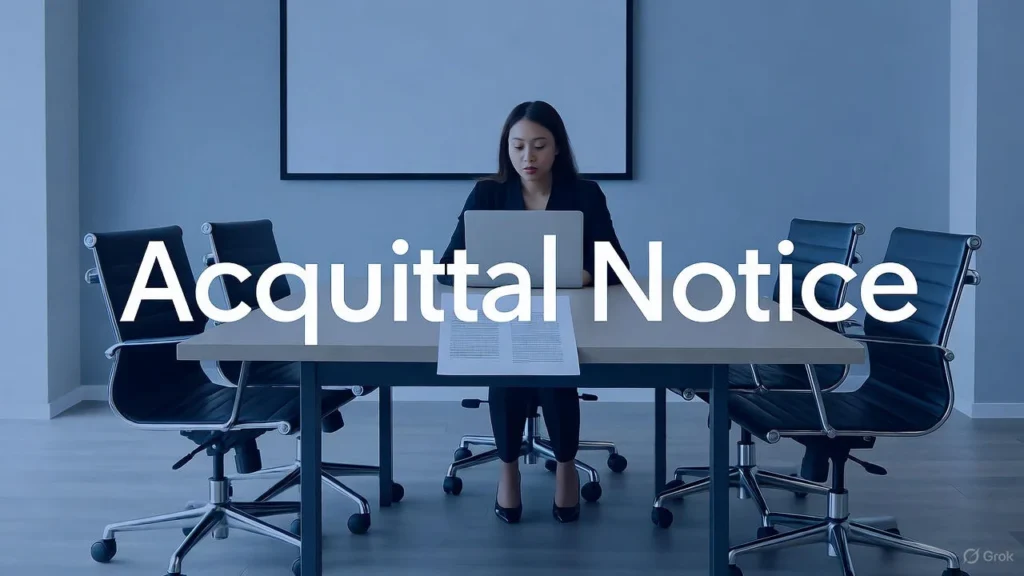
Perfectly suitable in legal, academic, and media writing.
Use it formally in reports, debates, or analytical articles.
✅ Alternatives for business or general communication:
- “Cleared of charges”
- “Found not guilty”
- “Declared innocent (after review)”
❓ FAQs
1. What does “acquitted” mean in court?
→ It means the accused is found not guilty after trial.
2. Is acquitted the same as innocent?
→ No — it means guilt wasn’t proven, not that innocence was proven.
3. Can someone be retried after acquittal?
→ No, due to double jeopardy protection.
4. What’s the difference between dismissed and acquitted?
→ Dismissed = case dropped early; acquitted = not guilty verdict after trial.
5. Is acquittal good or bad?
→ For the defendant, it’s good — it means freedom from legal penalties.
🏁 Conclusion
To be acquitted means to be legally free — cleared of guilt after a fair trial.
It’s a crucial term that upholds justice and the presumption of innocence.
So next time you hear, “The defendant was acquitted,” you’ll know it’s not just a legal phrase — it’s a statement of freedom and fairness. ⚖️




